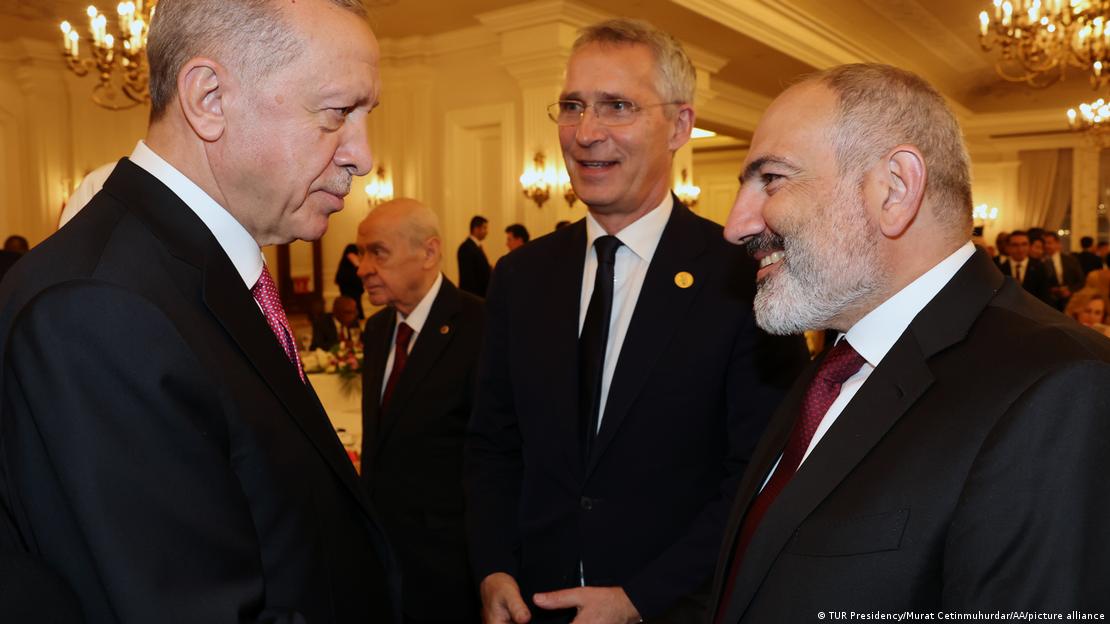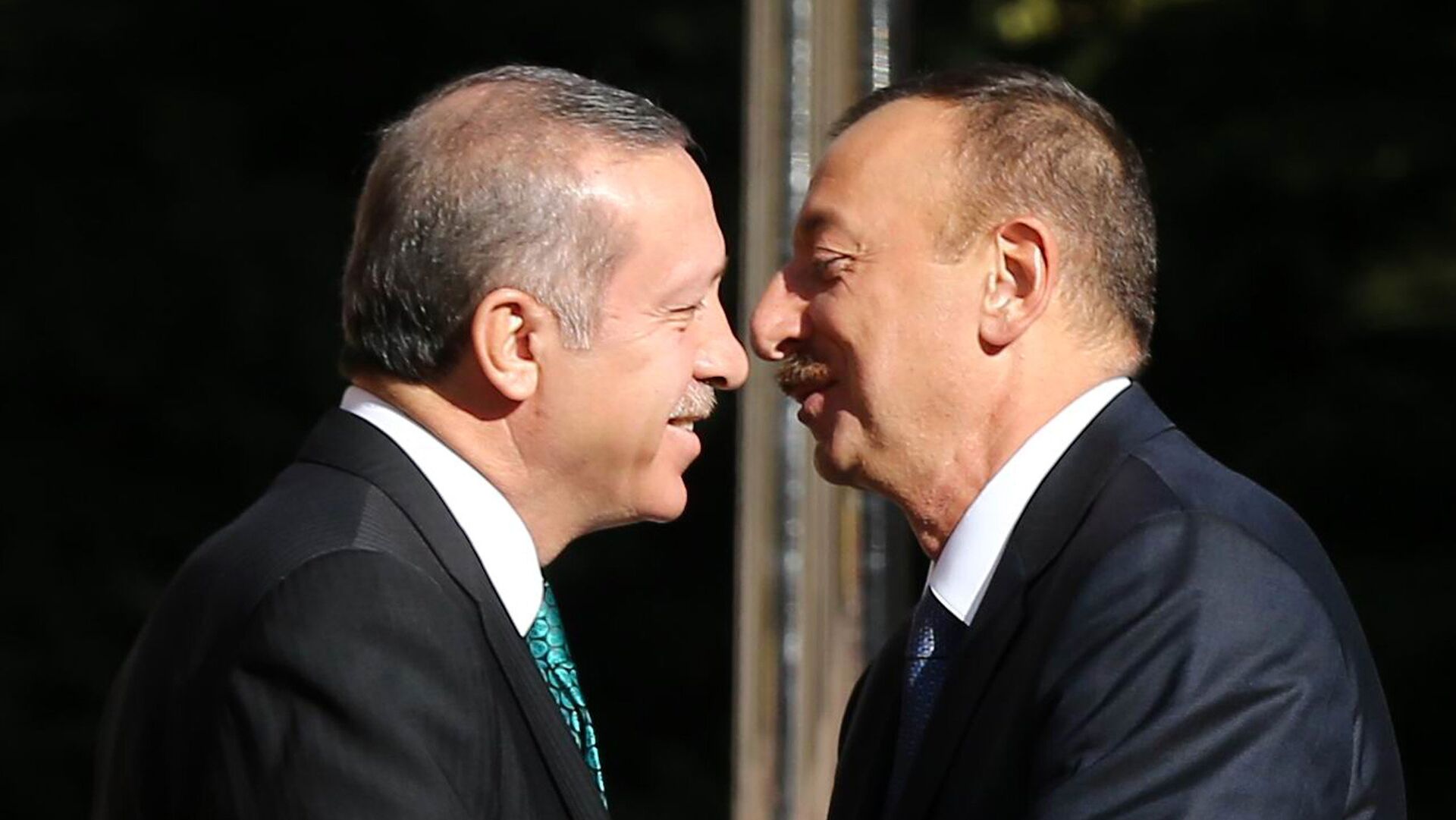
On Armenian-Turkish normalization
“Residents of economically disadvantaged Turkish settlements near the Armenian border want the Armenian-Turkish border to open because they understand it would benefit them; it’s in their interest. Inside Turkey, in other regions, there’s also an understanding that opening the border would be advantageous. In this sense, Erdoğan is facing some pressure,” said former Turkish parliamentarian and ethnic Armenian Garo Paylan in an interview with Armenpress.
According to him, Turkey’s president is weighing which option would be more beneficial for him. If, in his calculations, the benefits of opening the border outweigh the losses, Erdoğan will open the border; otherwise, everything will remain as it is. Paylan describes the Turkish president as an “opportunist” who primarily promotes his own interests:
“Erdoğan isn’t concerned with what happens in other parts of the world; he’s focused on where he can gain the most advantage.”
Turkey officially recognized the independence of the Republic of Armenia in December 1991. However, diplomatic relations between the two countries have not yet been established. Turkey unilaterally closed the land border with Armenia in 1993. It briefly reopened for a few hours in February 2023 to allow Armenian trucks carrying humanitarian aid to pass into the Turkish earthquake zone.
Talks on resolving Armenian-Turkish relations gained momentum after the 2020 Nagorno-Karabakh war. The normalization process is taking place bilaterally, but Turkey continually emphasizes that it coordinates the negotiation agenda with Baku when engaging with Yerevan.
What else did Garo Paylan say in his interview?
- Turkey anticipates opening of borders with Armenia
- Turkey’s role as a mediator in Armenia-Azerbaijan talks: What will come of it?
- “By providing a corridor, Armenia can request a road to the Black Sea.” Opinion
“The West is trying to persuade Turkey”
“Western countries are trying to convince Erdoğan to open the borders so that the communications and roads that will be built can be used by the countries of the region,” said Garo Paylan.
He believes that after the 44-day Nagorno-Karabakh war, Erdoğan was in favor of opening the Armenian-Turkish border, but now he’s less inclined. However, Paylan did not clarify what led to the change in the Turkish president’s position.
Commenting on the normalization process between Armenia and Turkey, Paylan reminded that Turkey also has issues with Greece:
“However, the borders are open, trade is ongoing, there’s a flow of tourists, and diplomatic relations are established between the countries. Of course, the problems between Armenia and Turkey won’t be solved overnight, but first, the borders need to be opened, and then both sides can begin addressing all the issues.“
In December 2021, Yerevan and Ankara announced their willingness to take steps toward normalizing relations. Both countries appointed special representatives for this process. They’ve met five times so far, but no significant breakthroughs have been made in the negotiations.
The most recent meeting took place on July 30 at the Armenian-Turkish border. The sides agreed to “assess technical requirements in line with regional developments to ensure the operation of the Akhuryan/Akyaka railway border crossing, and to mutually simplify visa procedures for holders of diplomatic passports.” There is no information yet on what steps are being taken to implement these agreements.
Two years ago, following the meeting of the special representatives on July 1, 2022, it was reported that they agreed to begin direct cargo flights between Armenia and Turkey and to allow third-country nationals to cross the Armenian-Turkish land border. In January 2023, the ban on direct cargo flights was lifted. However, no progress has been seen regarding the opening of the border.
“Both Aliyev and Erdoğan need enemies”
Garo Paylan also discussed Armenian-Azerbaijani relations:
“It’s time for a peace agreement between Armenia and Azerbaijan. The U.S. and the European Union need to reach an understanding with Erdoğan so he can convince Azerbaijani president Ilham Aliyev to sign a peace deal with Armenia.”
In Paylan’s view, Azerbaijani president Ilham Aliyev, as the leader of an authoritarian state, fears that making peace with Armenia would mean losing his enemy:
“That’s Aliyev’s biggest fear. Once peace is established and people from both sides start connecting, Azerbaijanis will ask him why Armenians are getting richer while they remain poor.“
Paylan believes that Turkey and other countries should pressure Azerbaijan into making peace with Armenia. He also notes that “both Erdoğan and Aliyev benefit from having artificial or imagined enemies.”
The politician sees Armenia’s “Crossroads of Peace” project, proposed by the Armenian government, as critical for regional peace. He’s convinced that Armenia’s geographical location “is key to unlocking regional transportation routes.”

